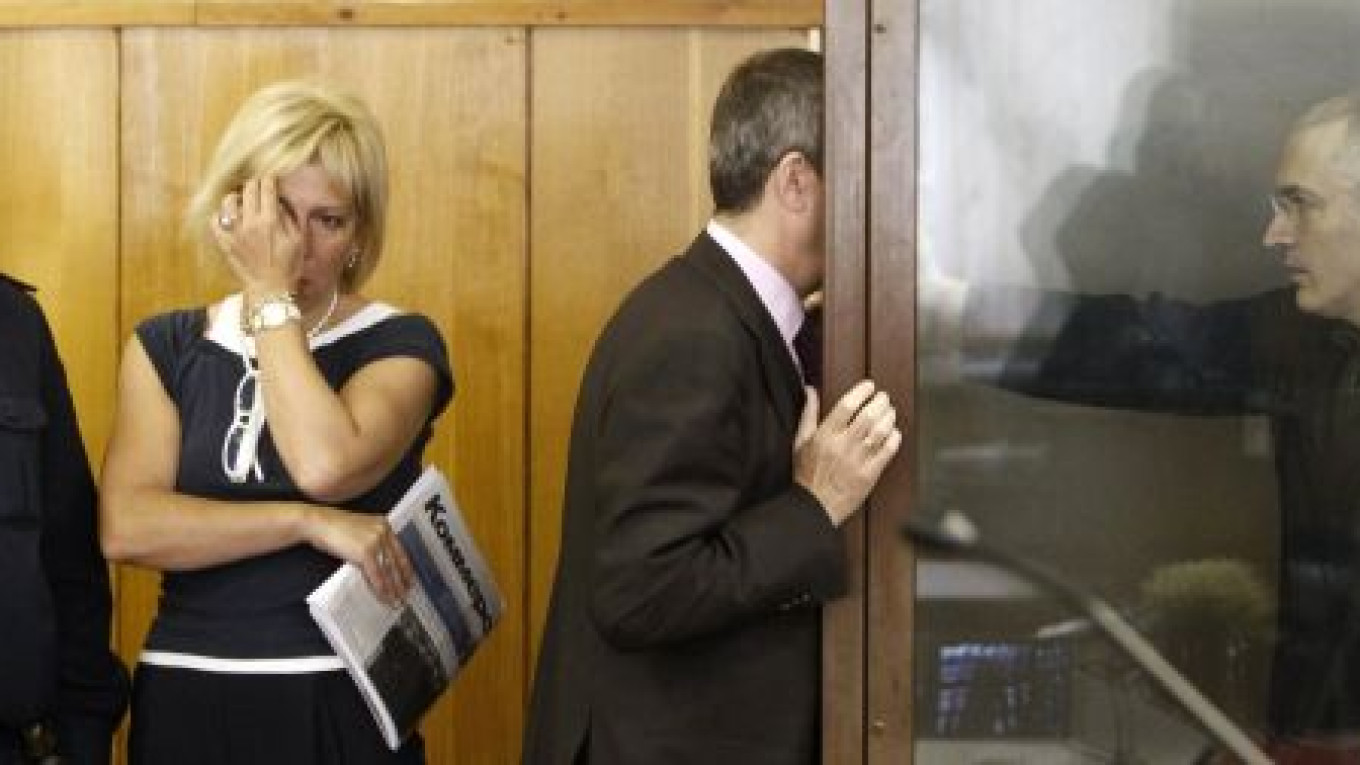Former Yukos CEO Mikhail Khodorkovsky has gone on a hunger strike to protest the extension of his custody, which he said violated new regulations introduced by President Dmitry Medvedev.
Judge Viktor Danilkin on Friday prolonged custody for Khodorkovsky and his business partner Platon Lebedev, who are accused of stealing 350 million tons of oil, until Aug. 17.
Khodorkovsky appealed the decision and went on a hunger strike Monday to let Medvedev know “how the laws … are implemented, or rather sabotaged, by the officials appointed by him,” according to a statement posted on his web site.
Prolonged custody has little practical effect on Khodorkovsky, who is serving an eight-year sentence after being convicted in 2005 of fraud and tax evasion.
But he protested the decision nevertheless, saying there are other cases where judges ignore Medvedev's amendments to the Criminal Code.
Legislation enacted a month ago prohibits the detention of suspects and defendants in many cases involving economic crimes, including those of Khodorkovsky and Lebedev.
The law was amended to avoid new incidents like the deaths of Hermitage Capital lawyer Sergei Magnitsky, 37, and businesswoman Vera Trifonova, 53, who died in detention after purportedly not receiving sufficient medical help.
The Moscow City Court will consider Khodorkovsky's appeal on Friday.
The Federal Prison Service said it would be monitoring the health condition of Khodorkovsky. He remains in the mass cell despite earlier reports that he will be placed in a cell by himself, RIA-Novosti reported, citing an unnamed source with the service.
The authorities may begin force-feeding Khodorkovsky in about 10 days if his condition worsens, a source in the Federal Prison Service told Interfax on Tuesday.
Judge Danilkin asked during Tuesday's hearing to be informed of the possible worsening of Khodorkovsky's health.
Lawyers for Khodorkovsky and Lebedev petitioned on Tuesday to replace Danilkin because of his decision to extend their clients' detention, the latest in their series of attempts to remove the judge from the case. The court will consider their request Wednesday.
Khodorkovsky said he would not eat until he could confirm that Medvedev had received “comprehensive information” about his case.
As of Tuesday afternoon, there was no public reaction from Medvedev, who was paying a visit to Ukraine.
Khodorkovsky sent his statement to Supreme Court Chairman Vyacheslav Lebedev and published a copy on his web site, Khodorkovsky.ru.
Lebedev confirmed on Tuesday that he received the appeal, but said he had not read it yet. "My position and my decision will be communicated to you," Lebedev told journalists, Interfax reported.
Khodorkovsky went on hunger strike for about two weeks last year to protest the treatment of a former colleague, Vasily Aleksanyan, who was kept in jail despite worsening health problems from HIV. He ended the hunger strike when Aleksanyan was moved to a civilian clinic.
A Message from The Moscow Times:
Dear readers,
We are facing unprecedented challenges. Russia's Prosecutor General's Office has designated The Moscow Times as an "undesirable" organization, criminalizing our work and putting our staff at risk of prosecution. This follows our earlier unjust labeling as a "foreign agent."
These actions are direct attempts to silence independent journalism in Russia. The authorities claim our work "discredits the decisions of the Russian leadership." We see things differently: we strive to provide accurate, unbiased reporting on Russia.
We, the journalists of The Moscow Times, refuse to be silenced. But to continue our work, we need your help.
Your support, no matter how small, makes a world of difference. If you can, please support us monthly starting from just $2. It's quick to set up, and every contribution makes a significant impact.
By supporting The Moscow Times, you're defending open, independent journalism in the face of repression. Thank you for standing with us.
Remind me later.


